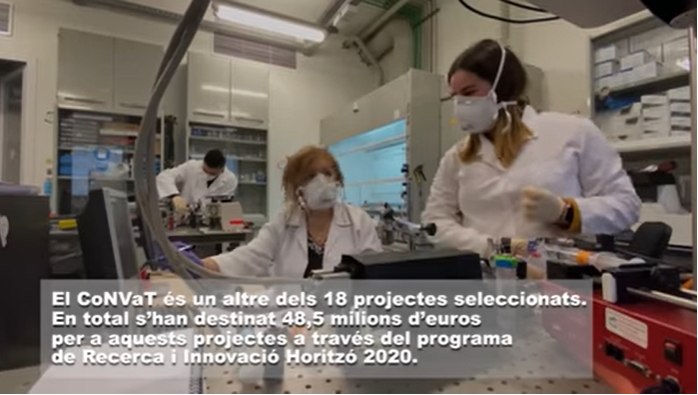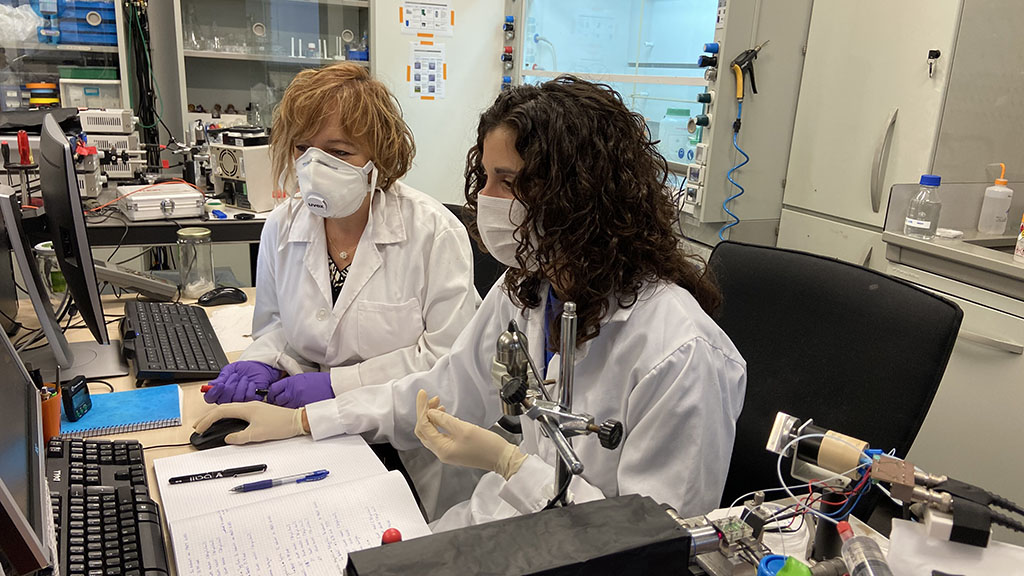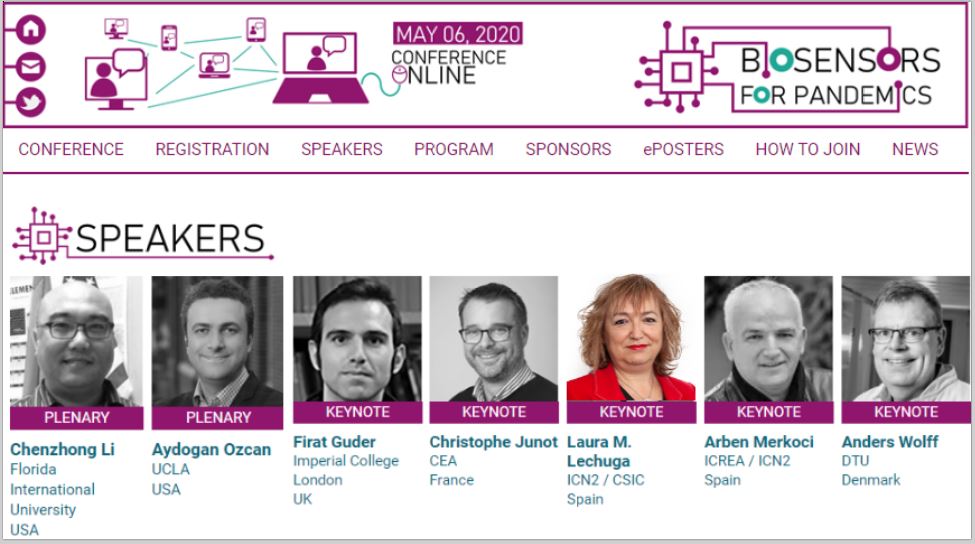The European Commission releases a video showing the European project against coronavirus led by prof Laura Lechuga
The European Commission Representation in Barcelona has published the five-minute video “The EU fights the Covid-19 from Catalonia” in which four researchers explain the projects they are working on.
The researchers appearing in the video are Laura Lechuga Scientific Director of NANBIOSIS unit 4 from CIBER-BBN and ICN2-CSIC and Group Leader of CIBER-BBN at the ICN2 Nanobiosensors and Bioanalytical Applications Group), who works on a sensor to detect the coronavirus in a faster, easier and cheaper way than with current PCRs, Núria Montserrat (IBEC), who works on micro-kidneys made from stem cells to test a drug able to block the virus, Alfonso Valencia (BSC), who explains the huge computation power that the BSC can bring into play to find already existent drugs that may be suitable to treat Covid-19, and Gabriel Anzaladi (Eurecat), who studies the presence of the virus in wastewater to estimate the people infected in a given zone or the probability of a new outbreak.
The European Commission is present in all Member States through a network of offices, called “representations”, which aim to report on the Commission’s activity and to bring the policies of the European Union closer to citizens. They are also in charge of capturing the social reality and the climate of opinion at street level and transferring this information to the European institutions in Brussels so that their policies better respond to the needs of citizens. In Catalonia and the Balearic Islands, this work is carried out by the “Representation of the European Commission in Barcelona”.












